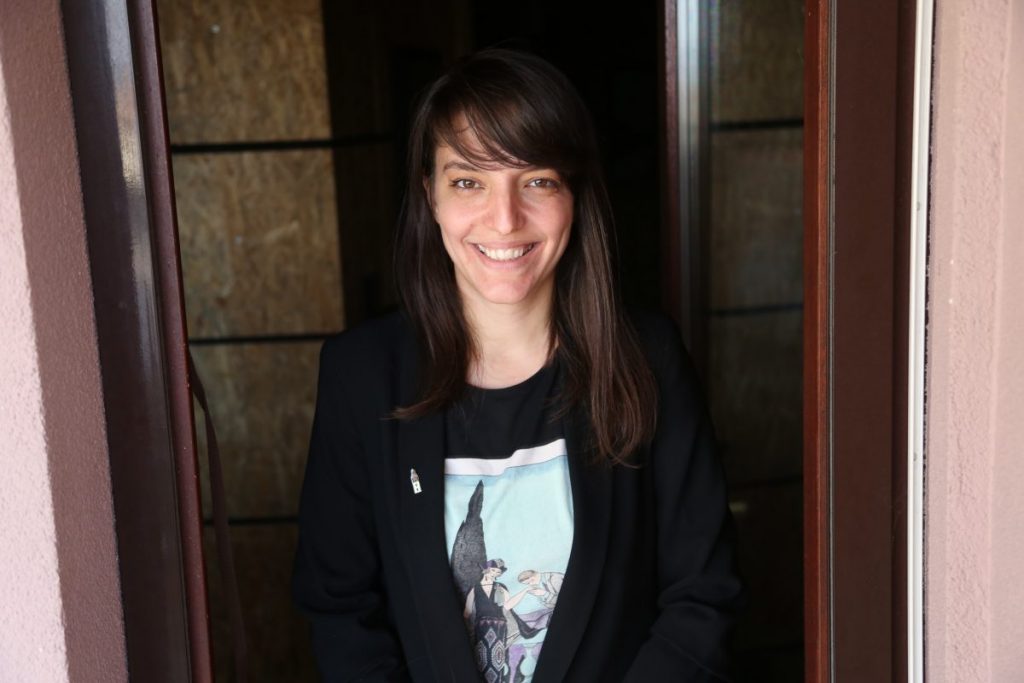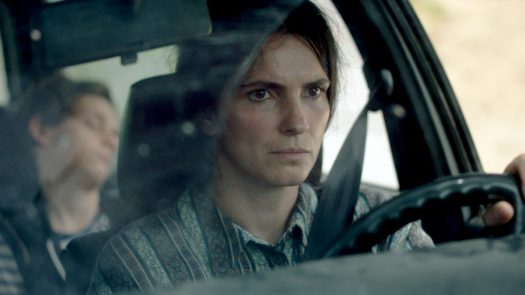
In Blerta Basholli’s debut feature film, women are not allowed to run businesses or earn money or even have driver’s licenses, but that is exactly what they end up doing.
Hive takes place in war-torn Kosovo in the late 1990s, and focuses on how one woman, Fahrije, tries to provide for her family while her husband goes missing. The character is based on Fahrije Hoti, who gathered together other war widows to make and sell their own red pepper jam, called ajvar. The women become entrepreneurs out of necessity, but ultimately find a sense of fulfillment and purpose in their work.
“It’s about women being oppressed, and that is sadly an old story in a lot of countries, but [I was] able to make it really fresh and interesting with the angle of these women coming together to start their own business,” Basholli said in an interview from Kosovo.

An old story, but still an important one — Hive won three awards at the Sundance Film Festival, including the Directing Award, and the film was shortlisted by the 2022 Academy Awards as Kosovo’s entry for Best International Feature.
Basholli said her original plan was to take a satirical approach to the subject, but once she met the real Fahrije, that idea flew out the window. “I was like, ‘This is a really strong woman in front of me and I want to portray this strong character on screen.’”
In the film, actress Yllka Gashi, who plays the protagonist, gets her driver’s license and buys ingredients in bulk from a local grocer to make the ajvar — all while facing misogynistic threats and sexual violence from locals. In one scene, a stone strikes Fahrije’s car, shattering a window.
Basholli focuses her camera squarely on Fahrije’s face to portray her inner struggle to keep her family together and her strained hope that her husband will return. As the women grow more confident, smiles and laughter begin to crack through their troubled, serious faces.
“They were of course full of pain and anger and frustration about everything, but [Fahrije] found ways to gather them together to talk, cry, laugh, dance, sometimes talk about marriage or sex,” Basholli said.
The director had the chance to meet the pepper jam makers, dubbed “The Women of Krusha,” who still maintain an active business. “They really helped each other to move on and they’re still together, and it’s really beautiful to meet them and see how they work together,” Basholli said.
Basholli also reflected on her own experiences while making the film. “I dug deep into my own emotions as a woman, as an Albanian, as a war child who was 16 when the war happened,” she said.
“I really tried to understand how I felt during that time, how my mother must have felt during that time, and how Fahrije feels — missing her husband and dealing with society and having to raise two kids.”
The director also has two children, boys who are 4 and 7. “Being a mother also helped, because raising kids is hard anyhow,” she said of imagining her protagonist’s level of turmoil.
There were no cinema classes offered in school when she was growing up, but Basholli said her inspiration to become a filmmaker came from her father, who would frequently watch Westerns on TV. Father and daughter were both captivated by long shots of American landscape, “all before John Wayne says ‘hi,’” she said.
“You don’t have to read subtitles, you just watch beautiful imagery,” Basholli said. “That was the impact of the moving image in me, and the composition that I got from my father. Also, I think it was a way of expressing myself, because I wasn’t a very talkative person.”
And she’s already at work on her next project, a coming-of-age story based on her own adolescence living in occupied Kosovo. While she was able to raise some public funds from her mother country to make Hive, she was able to break down a barrier in winning funding from Switzerland, a first for a Kosovan filmmaker.
“For me, it’s really interesting to discuss certain issues through film, whether that’s gender issues or political issues or giving voice to marginalized groups,” Basholli said. “I really hope that, through every project, I can raise a discussion.”
This post has been updated.




